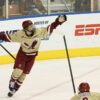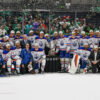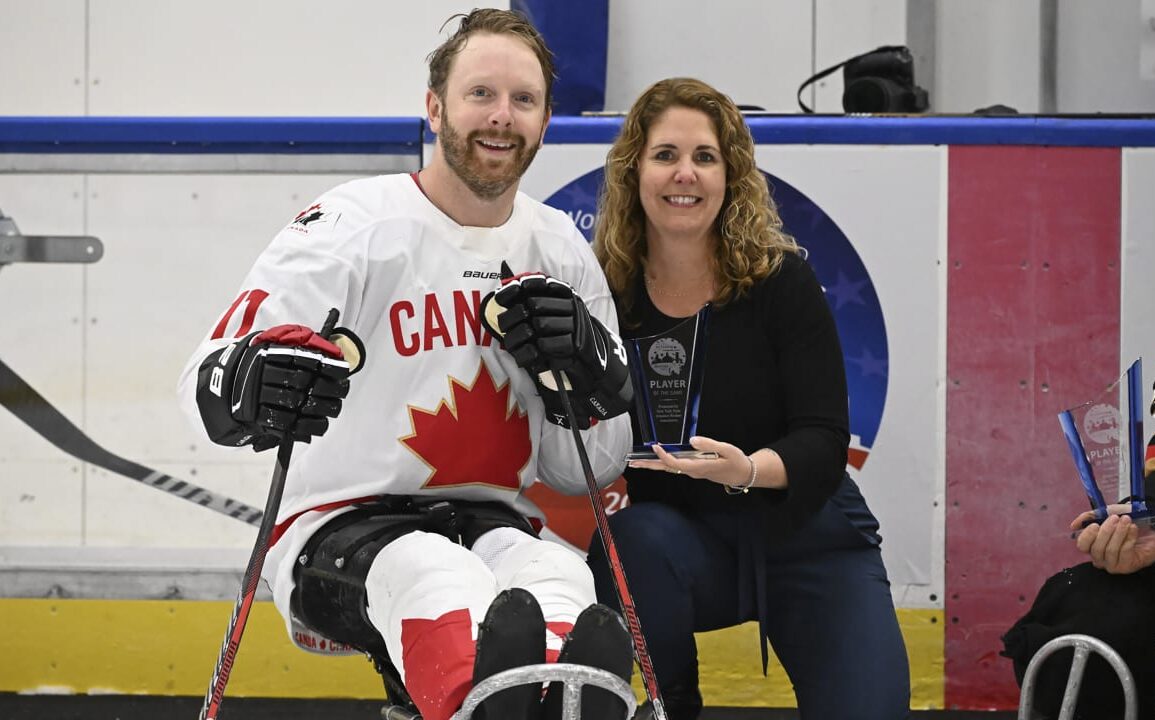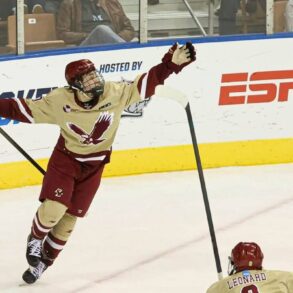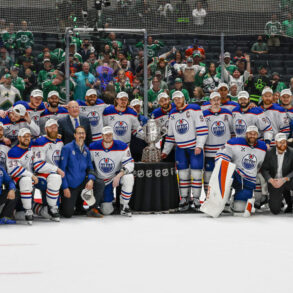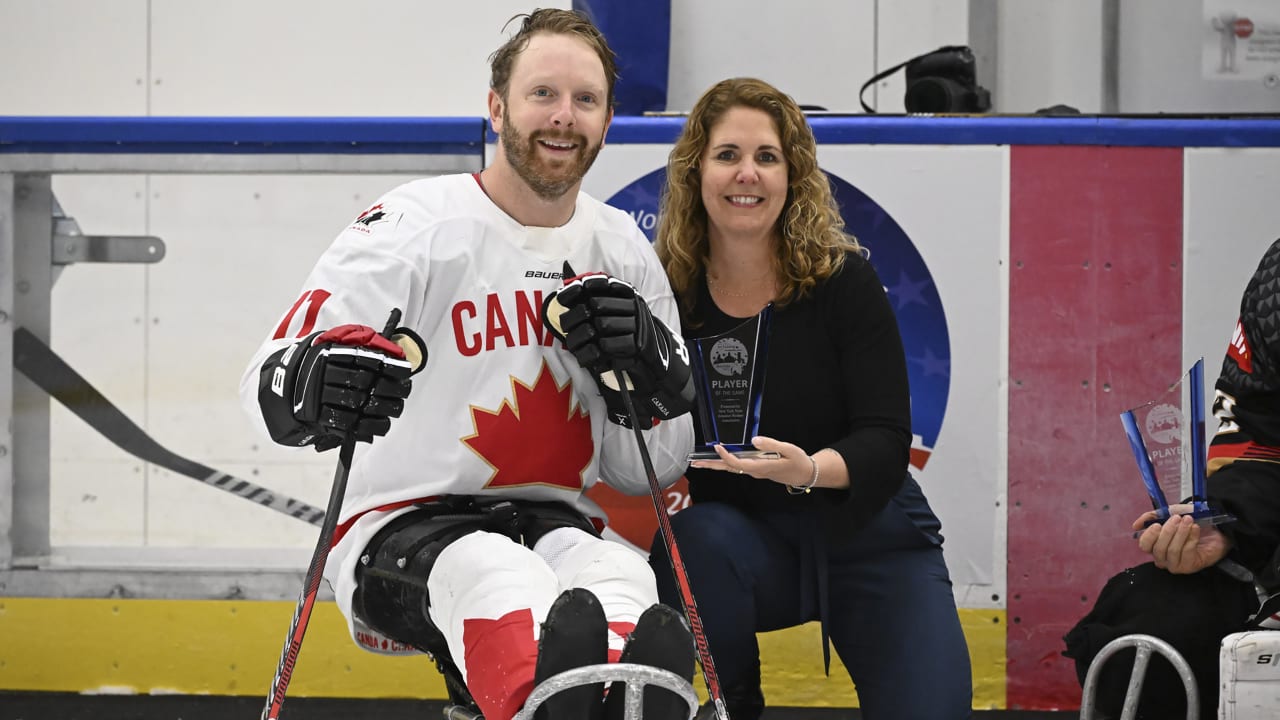
Canada coach Russ Herrington first met Dixon nearly a decade ago. He has watched him grow not only as a player, but as a person.
“I think he’s always had the joy for the game of hockey in particular,” Herrington said, “but just the amount of care that he shows towards disabled youth and trying to improve the inclusivity of arenas and facilities for a variety of sports, but in particular para hockey, it’s just great to have someone around that has that passion and that kind of rubs off on the rest of us.”
Dixon grew up embedded in hockey in Midland, Ontario, about a two-hour drive north of Toronto. In addition to Dixon’s time as a player, his father, Wayne, played Senior-A hockey, so Adam was always at the rink, sometimes as a timekeeper or a referee.
Then, in the blink of an eye, it was taken away.
“I’m no longer the kid who plays hockey, I’m the kid with cancer,” Dixon said. “To kind of have that taken away from me, and then I was in my recovery phase, I was always finding a way to, if I do this, I’d be able to skate again, if I did that, I’d be able to skate again.
“So my rehab was all about how I could play hockey again, and those days never really came. When I found para hockey, that was kind of the light at the end of the tunnel for me, like, OK, now this is what I’m going to achieve. This is what I’m going after.”
He found motivation from former Montreal Canadiens center Saku Koivu. Dixon, a Canadiens fan, was recovering when the then-Montreal captain was diagnosed with Non-Hodgkin lymphoma in September 2001.
“Having Saku Koivu go through the same things I was going through was kind of kind of neat at that time for me,” he said.
Dixon started playing para hockey at 11 years old, but at the time, in his mind, it was a stopgap until he could return to stand-up hockey. He even bought goalie equipment with the thought of playing that position because he could no longer skate the same way as a forward or defenseman.
He played six years with the Elmvale Bears Sledge Hockey Club before earning an invite from the national team when he was 17 years old. That changed his perspective on his future in hockey.
“I was all in. I was very excited,” he said. “All of a sudden, training was very important to me. I was in high school, and I was in gym class and all of a sudden I was focusing all that on all that stuff, and really listening and paying attention, because I could see that that was my new goal.”
This post was originally published on this site be sure to check out more of their content.


